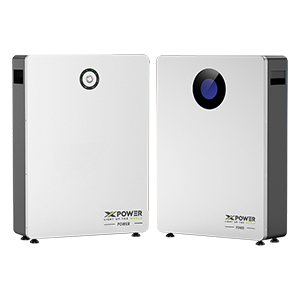Exploring Solar Panels Versus Solar Panels with Battery Storage
Time of Release : 2024-05-28
In our quest for sustainable living, tapping into renewable energy sources has become increasingly essential. Among these, solar power stands out for its eco-friendly characteristics and economic benefits. When it comes to solar energy systems, the choice between traditional solar panels and those equipped with battery storage can significantly affect efficiency, reliability, and overall energy independence.

Solar Panels: Embracing Sunlight for Energy
Let's start with traditional solar panels, also known as photovoltaic (PV) panels. These panels are at the heart of any solar energy system, capturing sunlight and converting it into electricity through the marvels of the photovoltaic effect. During sunny hours, they generate electricity, which can power your home directly or be fed back into the grid for credits through a process known as net metering.
While incredibly effective, solar panels do have limitations. They rely solely on sunlight, meaning they produce electricity only when the sun is shining bright. When the sun sets or is obscured by weather conditions, the panels stop generating electricity. This reliance on daylight hours can lead to sporadic power availability, sometimes requiring homeowners to revert to using the regular grid during low-light periods.
Solar Panels with Battery Storage: Paving the Way for 24/7 Solar Power
Enter solar panels with battery storage – a game-changer that addresses the shortcomings of traditional solar panels. Battery storage systems, often utilizing advanced lithium-ion batteries, work alongside solar panels to store excess electricity generated during the day. This stored energy can then be utilized during nighttime or overcast days when solar panel production is diminished.
The integration of battery storage elevates the self-sufficiency of solar energy systems, reducing the need for grid reliance and ensuring a continuous power supply even when sunlight is scarce. By storing surplus energy, solar panels with battery storage maximize energy independence and reduce dependence on conventional energy sources.

How They Differ:
1. Energy Storage: The primary difference between traditional solar panels and their battery-equipped counterparts lies in their ability to store excess energy. While standard solar panels rely on immediate consumption or feeding back excess electricity to the grid, solar panels with battery storage offer a self-sustained energy ecosystem by banking surplus energy for later use.
2. Reliability and Energy Independence: Solar panels with battery storage offer greater reliability and energy independence compared to standalone solar panels. The stored energy in batteries ensures a continuous power supply, decreasing reliance on the grid and mitigating the impact of power outages.
3. Cost Considerations: Installing solar panels with battery storage usually requires a higher initial investment than traditional solar panels. However, the long-term benefits in terms of energy savings, grid autonomy, and potential rebates or incentives often offset the initial costs, making it a worthwhile investment for many.
In Conclusion: Making the Solar Choice
Both traditional solar panels and their battery-equipped counterparts offer significant advantages in harvesting solar energy. While standalone solar panels are a dependable source of clean energy, the addition of battery storage systems ramps up the efficiency and effectiveness of solar energy systems, providing improved reliability and energy independence.
The choice between the two ultimately depends on individual energy needs, budget considerations, and the desire for a greener, more sustainable future. Whatever your preference, embracing solar energy is a stride towards a brighter, more sustainable tomorrow.




